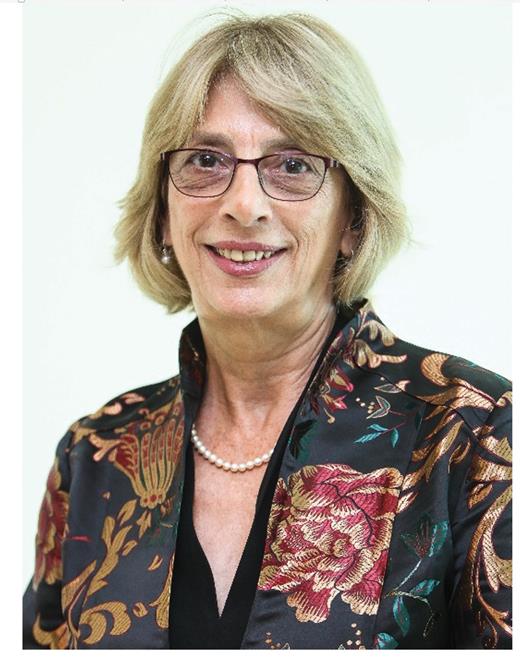Susan B. Shurin, MD, died unexpectedly at home on August 31, 2025, following a heart valve procedure. With her passing, many overlapping communities — including hematology; ASH; the National Institutes of Health’s (NIH) National Heart, Lung, and Blood Institute (NHLBI); pediatrics; and global health — lost a great leader, colleague, mentor, and friend. It seems incredible that Susan was 80 years old, given the boundless energy she exuded traveling around the world, staying on top of advances in hematology, advocating for health equity and civil rights, advising her innumerable professional friends, and helping raise her grandchildren in San Diego.
Susan came from a long line of activist clinicians, including her grandfather and her great-aunt — pediatricians who ran the only nonsegregated practice in St. Louis before World War II. After attending Harvard-Radcliffe College and the Johns Hopkins University School of Medicine, Susan trained in pediatrics at Boston City Hospital and hematology-oncology at Boston Children’s Hospital, where she worked closely with distinguished hematologist Dr. David Nathan. She joined the hematology-oncology faculty at Case Western Reserve University and Rainbow Babies and Children’s Hospital in Cleveland, initially focusing on phagocyte biology in the laboratory and iron overload in the clinical setting. She eventually rose to division director and ultimately vice-president and secretary of the entire Case Western system — no surprise based on her stellar organizational and leadership skills. She made foundational advances as an investigator, including validation of the first effective chelation regimen for transfusion-dependent patients, performing the first cord blood transplant for childhood leukemia, and running the first randomized controlled trial of granulocyte transfusions in sepsis.
I first met Susan when she was recruited to NIH in 2006 to become NHLBI’s deputy director. After focusing on infectious agents in the blood supply and undertaking a challenging reorganization of NHLBI’s funding of sickle cell disease (SCD) research, she became NHLBI’s acting director in 2009, remaining in the role for three years as biomedical research emerged from the last recession. The role of “acting” director, particularly as a woman, could result in not always being taken seriously (a male institute director once asked her to go get the coffee!) But Susan remained focused on the big picture, supporting research, developing the physician-scientist pipeline, and expanding collaborative opportunities in global health. Following her retirement from NHLBI, she became a part-time senior advisor to the National Cancer Institute (NCI) Center for Global Health, applying her passions in this area to advance research capacity and treatment in low- and middle-income countries. She received numerous accolades for her contributions, including the ASH Outstanding Service Award. Throughout her time at NHLBI and NCI, she served as an extraordinary mentor and sponsor to me and many other hematologists and scientists, providing clear and cogent advice, and showing us how to ignore the “noise” that academic medicine often generates to continue making meaningful contributions. I will deeply miss her counsel and friendship.
When Susan left government employment in 2014, I suggested she run for ASH treasurer based on her deep knowledge of hematology and academic medicine, as well as her experience managing the entire NHLBI budget. As treasurer, she applied her analytical mind to ASH during a time of major revenue growth and initiation of new programs focused on SCD. She helped leadership and staff feel confident that ASH’s reserves could support very ambitious programs to directly improve patient outcomes in SCD. These ASH programs have now reached their 10th anniversary, demonstrating real impact (hematology.org/CSCDI).
To support Susan's legacy, contributions can be made in her name to ASH's new Fight4Hematology campaign, which is focused on supporting additional awards and advocacy in SCD and global health, helping address gaps resulting from discontinuation of NIH funding. Please visit hematology.org/honor-dr-susan-shurin.

